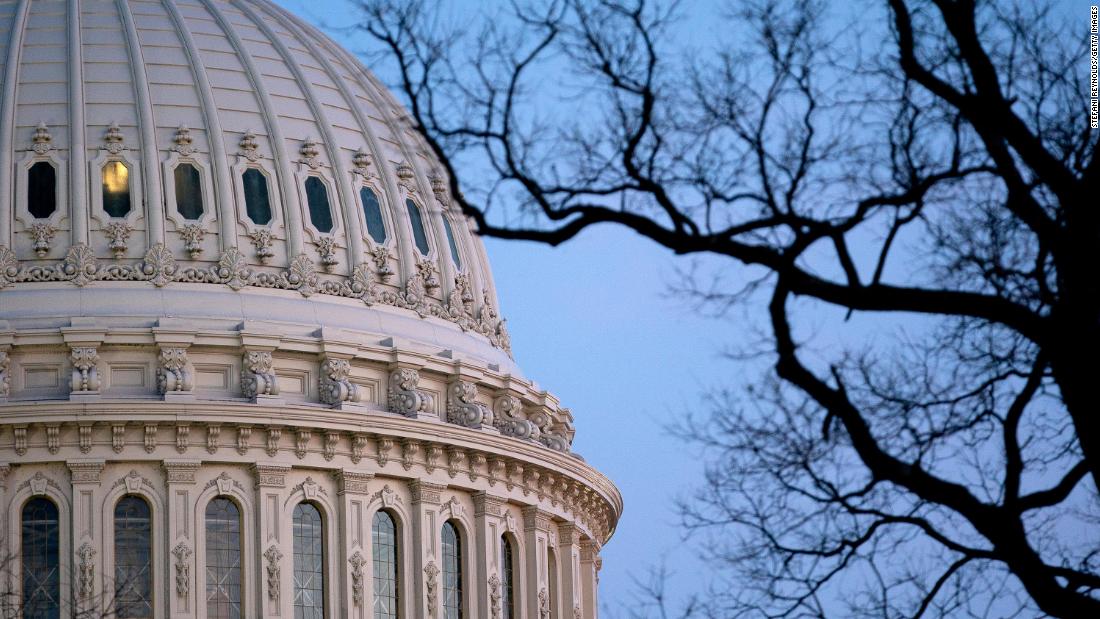Analysis: Republicans pull back from the Covid brink — for now
Despite strenuous objections to a shutdown from many of their GOP colleagues, who pointed out that Biden’s vaccine mandates are already tied up in the courts, Republican Sens. Mike Lee of Utah and Roger Marshall of Kansas argued that they were taking a critical stand for unvaccinated workers in their states who might lose their jobs over their vaccine objections.
“All we wanted to do was have a vote to give a chance to the hardworking mom or dad, soldier, sailor, airman or Marine struggling to put food on the table,” Lee said in remarks on the Senate floor. “I hope with everything in me that when we cast this vote tonight that a majority of us will do the right thing, and that we’ll vote the way that we know we should vote. That we’ll stand with those people who may lose their jobs.”
Sen. Patty Murray, a Democrat from Washington state, countered that the pandemic has already killed more than 780,000 Americans — “a higher body count than any war we have ever fought in.” She noted that many businesses with vaccination requirements have seen their vaccination rates rise well above 90%.
“I do not understand why — after all families have been through, after all we have lost and all the hard work we’ve done to rebuild — would anyone want to throw that in jeopardy and throw away one of the strongest tools we have to get people vaccinated, keep them safe and end this pandemic, once and for all,” Murray said. “It is senseless. It’s reckless.”
Lee portrayed a desperate economic plight for vaccine-resistant Americans, even though Biden’s vaccine mandate for large employers would allow workers who do not want to get vaccinated to get routinely tested in lieu of shots. But GOP leaders all across the country have echoed those arguments that the requirement could somehow have devastating consequences, with little acknowledgment of the deadly consequences that prolonging the pandemic could have.
After the amendment failed on Thursday night, Lee told reporters he plans to keep bringing up measures to block Biden’s vaccine mandates on other bills, specifically alluding to the next government funding deadline, on February 18, as another opportunity.
“This isn’t going away,” he told reporters. “It’s going to come back up again. It’ll come back up in any future vote-a-rama. It’s going to come back again every time we get the opportunity.”
At a time when Americans are desperate for a return to normal life, public health experts have argued that getting more people getting vaccinated is the only path out of the crisis. Resistance to masks, vaccines and mandates has allowed the virus to continue to flourish as the US heads into winter, particularly in communities where vaccine resistance is the highest.
‘A sad, sad commentary’
He stressed that his strategy “doesn’t involve shutdowns or lockdowns, but widespread vaccinations, and boosters, and testing and a lot more.” As his vaccine requirements, which were slated to go into place by early January, are reviewed by the courts, he noted that his new plan does not “expand or add to those mandates.”
“I know Covid-19 has been very divisive in this country; it’s become a political issue, which is a sad, sad commentary,” the President said, speaking from the National Institutes of Health. “This is a moment when we can do what we haven’t been able to do enough of through this whole pandemic — get the nation to come together, unite the nation in a common purpose to fight this virus, to protect one another and to protect our economic recovery and to think of it literally as a patriotic responsibility rather than somehow you’re denying people their basic rights.”
The health consequences for the GOP in continuing to coddle the unvaccinated minority of Americans are bracing at a time when nearly 1,000 Americans are still dying from Covid each day.
The average risk of dying from Covid-19 since vaccines have become widely available is more than 50% higher in states that voted for then-President Donald Trump in 2020 than it is in states that voted for Biden, according to a CNN analysis of data from Johns Hopkins University.
Since February 1, red states that voted for Trump have had an average of 116 Covid-19 deaths per 100,000 people — about 52% higher than the average of 77 deaths per 100,000 people in blue states. The five states with the worst per capita death rates during that time all backed Trump in 2020: Oklahoma, Alabama, Florida, Kentucky and West Virginia.
“The actions I’m announcing are ones that all Americans can rally behind and should unite us in the fight against Covid-19,” the President said. But whether he can build any greater cooperation with the GOP to get behind his strategies remains to be seen.
![]()


